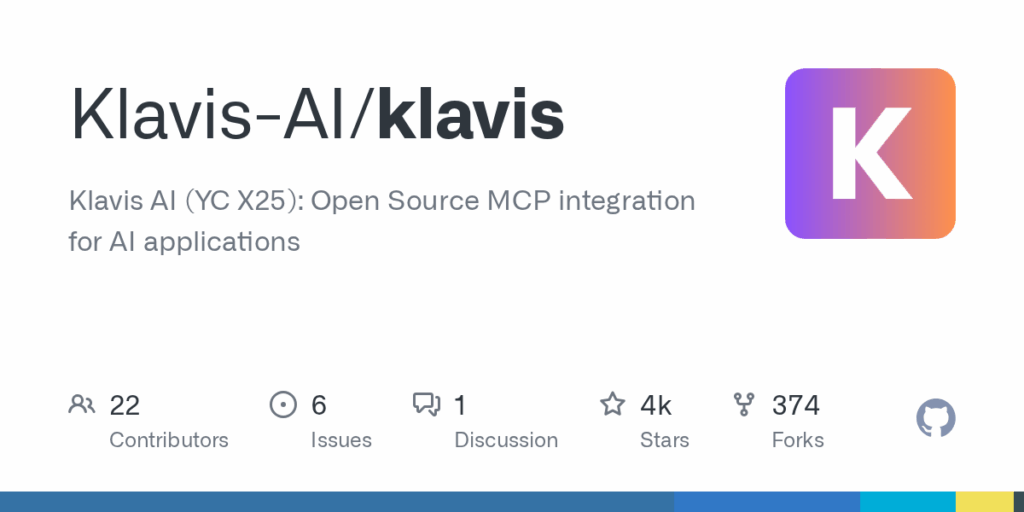klavis
Basic Information
Klavis AI is an open source project that provides MCP (multi-tool connector protocol) integrations and hosted MCP servers to simplify building AI applications and agent workflows. The repository supplies Python and TypeScript SDKs, a REST API, example integrations and server implementations so developers can create, provision and manage MCP server instances for services such as Gmail, YouTube and many more. It centralizes authentication flows (OAuth and API key management), exposes collections of prebuilt tools in formats compatible with LLM function-calling, and includes self-hostable MCP server code so teams can run their own connectors. The project also offers documentation, tutorials and example code showing how to integrate with LLM providers and agent frameworks to enable tool calls and multi-step tool workflows.








